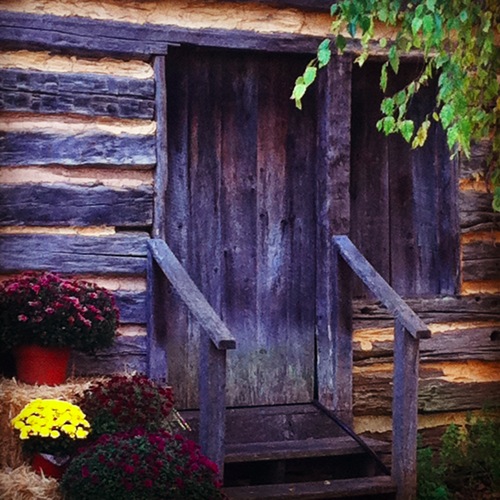
When her daddy refuses to let her return for the last three years of her full-ride scholarship to The Piano Conservatory saying sternly, “Women need a husband not an education – especially an education in playing the piano,” my grandmother agrees to marry Granddaddy who agrees to let her keep her piano. When we are old enough, Grandmother teaches each one of her grandchildren to play the piano. On our assigned day, Granddaddy picks us up after school in his white and gray Ford F-150 and takes us to their house where he treats it to Co’ Colas (in the small bottle, of course, because they taste better) and ‘cream (vanilla ice cream) before our lesson.
From small bottles of soft drink, I learn about forming relationships over food.
”We weren’t allowed to buy soft drinks at the local store,” he tells me, “but there was one shop owner in town who would sell us a case if nobody was looking. His delivery boy had to carry them to the car, though. We couldn’t risk being seen toting a wooden case of Co’ Colas out of his store because black people didn’t buy enough groceries to keep him in business and white folks, if they saw him selling Co’ Colas to us, would stop shopping there.”
From small bottles of soft drink, he learns about discrimination.
~~~~~~~
”Which bus do I ride home?” the seven-year-old me asks Mother as she drops me off on the first day of second grade.
”Just ride the bus you rode last year,” she tells me, and I do, waking up just as Mr. Dan Phillips pulls the snub-nosed, rounded bus #5 into his barn at the end of his route.
”Mr. Phillips,” I say as he turns the silver upright handle to open the door and let himself out, “am I spending the night with you?”
”Where did you come from Jeanne?” he asks.
I point to the third seat on the row behind him, still rubbing my eyes awake.
”C’mon,” he tells me, chuckling softly. “I’ll take you home.”
”She was sound asleep,” he tells my mother, and she’s so short, I couldn’t see her in the rear view mirror. The routes changed this year. She needs to take bus #2 home now, Robert Storey’s bus.”
From riding a school bus, I learn to ask for help.
As a fourteen year old, he drives a school bus, stretching to make himself big enough to reach the pedals and shift the gears. “We didn’t usually have enough gas to get us through the entire week,” he tells me, “so Friday afternoon I had to zig-zag back and forth across the road to slosh what little gas was still in the tank to keep the engine running and get us all home.”
From driving a school bus, he learns resourcefulness.
~~~~~~~
Harriett Dean, mother of my best friend Dianna, takes us swimming at Lake Spivey. Harriett Dean spreads out a towel and settles herself with a good book while Dianna and I run to the water. Quickly tiring of the pick-up game of Marco Polo and knowing it is too early to get the inevitable grape snow-cone, Dianna gets out of the lake, climbs onto the concrete block wall, grabs her nose, and leaps feet first into the water.
The smile that wraps around her face as she comes to the surface, shaking the excess water from her curls-from-a-box hair tells me this is some fun I want to have, too. I hoist myself up on the wall, walk out to where I think Dianna jumped from, and leap. When I come to the surface, I’m too far out in the dreaded deep end. My feet can’t find the bottom, and every time I try to yell for help, my mouth fills with water leaving no room for sound. Dianna is making her way back out of the lake for another jump. Harriett Dean is laying face down on the towel now, tanning her back. Nobody else knows or notices me. I am going to drown, and I’m not even sure how they’ll find me because this is a lake, not a swimming pool.
Eventually I dog paddle my way to the shallow end. I will need a nap, but I will live.
From swimming, I learn that just because my friend friend can do something doesn’t mean I can do it, too..
They were to jump from the 40-foot platform because that’s roughly the same distance to the pool as the ship’s deck is to the ocean. He wasn’t afraid because he knew how to swim – his mama made sure of that – but he was puzzled when the Navy survival course instructor barked, “Black people can’t swim, so those of you who can swim form a line over here, and those who can’t swim, fall in behind the two black boys.”
Surprised to learn that black people can’t swim – something he’s been doing his whole life – he watches as self-declared non-swimmers fall in line behind him while his friend Austin, the only other black man within sight, takes a place at the front of the Can Swim Line. One man jumps in, comes to the surface, and swims to the side of the pool. Another does the same, and now it’s Austin’s turn. Austin leaps into the water easy enough, but he goes straight to the bottom and stays there. “We have a rock,” the instructor calls out before he and his assistant dive in to pull Austin to the surface.
Sputtering and coughing as one is wont to do after spending unplanned time under water. Austin catches his breath, looks up at the instructor, and asks wryly, “Which one did you say is the line for those who can’t swim?”
From a swimming training session, he learns stereotyping.
~~~~~~~
Excerpts of stories from the memory banks of two people – a black man and a white woman who are roughly the same age and who grew up not too far from each other. I learned a lot about racism, racial inequality, and the power of listening and bearing witness that story-swapping afternoon.
I asked which term I should use: desegregation or integration. He prefers desegregation. Why? Because desegregation brought us together, allowing black to keep their own culture and community. Integration implies they must lose their culture for us to live side by side.
It was the best conversation about race, racism, racial inequality, segregation, and integration I’ve ever had. It happened with a stranger, and it happened because it was true conversation – no attempt or need to convert; no accusations and anger; no finger wagging. Just good old-fashioned back-and-forth conversation, complete with deep listening, bearing witness, and asking questions that rose from a place of curiosity, of sincerely wanting to know more. Chalk one up to the reaffirmation of the power and value of storytelling and good old-fashioned conversation.




















Other Places to Find Us